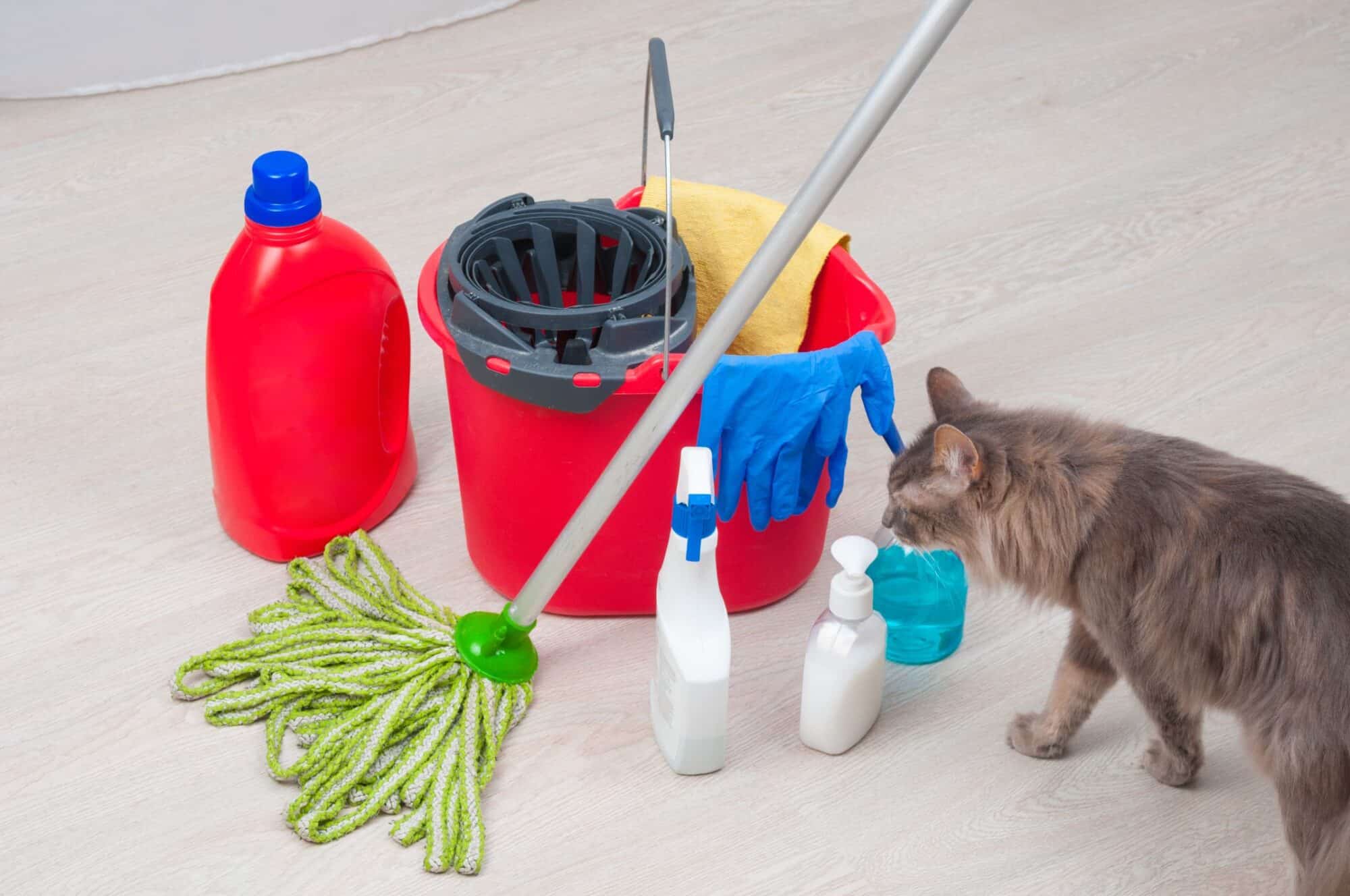Identifying Common Household Items That Are Toxic to Pets ![Paw Print Icon]()

The pets we share our lives with add layers of incredible meaning, but keeping them safe at all times can be stressful. There are hidden hazards everywhere. But the one place they should be absolutely safe from harm is their home. Common household items that are toxic to pets can be so ordinary and prevalent that pets don’t even consider them on their daily patrols. But all it takes is one moment of curiosity, boredom, and opportunity to upend a pet’s safety and health.
Clean as a Whistle
Every household has various cleaning products stored around the home. Whether it’s the laundry room, garage, kitchen, or bathroom, potential pet poisons are everywhere. It is crucial to keep bottles and containers behind cabinet doors, on high shelves, or in closets. When the following products are in use inside the home, be sure to thoroughly ventilate the space, and allow you pet the chance to stay safely outside until products are dry:
- Bleach
- Fabric softener sheets
- Toilet cleaner (gel and tabs)
- Products containing essential oils
- Carpet fresheners
- Oven cleaner
- Grout cleaner
- Air freshener
There are many safe cleaning products for pets, and they are labeled as such. Other natural cleaners can be made at home.
Good For You, Bad For Them
Many of us need or depend on certain medications. Used either daily or for acute problems, the following medications can cause dangerous side effects in pets:
- NSAIDS (ibuprofen)
- Acetaminophen
- Aspirin
- ADD/ADHD medication
- Antidepressants
- Pepto Bismol
- Sleep aids
- Birth control pills
- Nasal decongestants
- Topical creams or ointments
- Breath fresheners or toothpastes containing sorbitol or xylitol
What’s Outside?
In addition to lots of toxic flowers and plants found in garden beds (see this comprehensive list), these household items toxic to pets can be commonly found in sheds, garages, and patios:
- Rodenticide
- Insecticide
- Slug bait
- Cocoa mulch
- Antifreeze
- Brake fluid
- Window washing fluid
- Any products containing petroleum
- Fertilizers
- Ice melt (always purchase pet safe ice melt)
Pocketbooks and Bookbags
Our bags can also sometimes hold various items known to cause health complications in pets. Be sure to properly store these items, and try not to leave them out on surfaces your pet can access.
- E-cigarettes/vapes
- Regular cigarettes/cigars
- Marjuana products (including edibles or gummies)
- CBD products
- Nicotine patches or gum
Watch for Signs
Any changes to behavior or appearance, however slight or subtle, should be noted and watched carefully. Common symptoms associated with pet poisonings include:
- Vomiting
- Diarrhea
- Drooling
- Nausea/lack of appetite
- Racing heartbeat
- Pale gums
- Weakness
- Loss of consciousness
- Excessive thirst/urination
These are signs of a pet emergency. Please call us at (719) 839-0446 for help. The Pet Poison Helpline can also be reached (855) 764-7661 or the ASPCA Animal Poison Control Center at (888) 426-4435.
